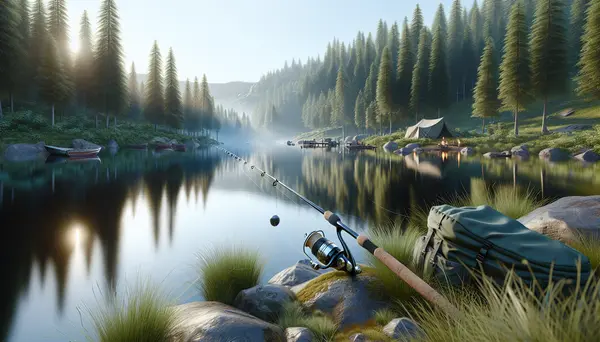Table of Contents:
Introduction to Fishing Zones
Fishing is a rewarding activity that combines the thrill of the catch with the serenity of being in nature. But, success in fishing isn't just about having the right gear or technique; it's also about knowing where to fish. This article will guide you through exploring and identifying your perfect fishing zone, providing strategies for success.
Understanding What Makes a Good Fishing Zone
A good fishing zone has certain characteristics that make it an ideal habitat for fish. These include water temperature, depth, clarity, vegetation cover, and food availability. Understanding these factors can help you identify promising areas.
Fishing Zone Exploration: Advantages and Disadvantages
| Aspects | Pros | Cons |
|---|---|---|
| Weather Condition Understanding | Helps in predicting fish behavior | Unpredictable changes can disrupt plans |
| Knowledge of Fish Types | Target specific species, increasing success | Requires considerable research and experience |
| Equipment | Proper gear can maximize catch | Initial investment may be high |
| Time of Day | Fishing at dawn/dusk can be highly productive | Specific fish species are nocturnal |
| Aquatic Environment Knowledge | Knowledge of underwater terrain can lead to greater catch | Requires advanced technologies to utilize |
The Importance of Water Temperature
Water temperature plays a crucial role in determining which species are present in a particular area as different types of fish prefer different temperatures. For instance, trout thrive in cooler waters while bass prefers warmer conditions.
The Role of Depth and Clarity
Besides temperature, both depth and clarity significantly affect where fishes choose to dwell within bodies of water. Fish often stay deeper during hot weather or bright daylight hours to avoid predators and heat stress but come closer to surface at dawn or dusk when feeding.
Vegetation Cover: A Key Factor
In addition to depth and clarity considerations,vegetation cover is another key factor influencing your choice of fishing zones because many species use underwater plants as hiding spots from predators or hunting grounds for prey.
Nutrient Availability: The Food Source Matters!
Last but not least on our list is nutrient availability - this refers primarily to smaller organisms like plankton upon which larger aquatic creatures feed directly or indirectly. Areas rich in these nutrients are likely to attract a higher number of fish.
Strategies for Identifying Your Perfect Fishing Zone
Now that we understand what makes a good fishing zone, let's explore some strategies you can use to identify your perfect spot:
Research and Planning
The first step is always research. Use online resources like maps or forums where other anglers share their experiences about different locations. This will give you an idea of the types of fish present in various areas and the best times to catch them.
Observation: The Key To Success
Your next strategy should be observation - spend time watching water bodies closely for signs such as jumping fish, birds diving into water (indicating presence of baitfish), or visible underwater structures which could serve as potential habitats.
Trial and Error: Don't Be Afraid To Experiment!
Sometimes finding the right fishing zone requires trial and error. Try out different spots at varying times until you find one that consistently yields results.
In Conclusion
Finding your ideal fishing zone isn’t just luck; it involves understanding key environmental factors affecting fish behavior along with careful planning, keen observation skills, and sometimes even a bit of experimentation! By applying these strategies discussed above, not only will your chances of landing a great catch increase but also make each trip more enjoyable knowing you're fishing smartly!
Fishing Strategies: Mastering the Perfect Fishing Zone
What is the perfect fishing zone?
The perfect fishing zone refers to the area where fishes are most abundant. This can be influenced by several factors like water conditions, fish behaviors, and availability of food sources.
How can I locate the perfect fishing zone?
Identifying the perfect fishing zone involves recognizing and understanding certain signs such as bird activity, water temperature and color, and presence of other sea life, among others.
Why is the perfect fishing zone important?
Finding the perfect fishing zone increases your chance of catching fish. It saves a lot of time and resources and makes your fishing activity more successful and satisfying.
What strategies can I use to have success in the fishing zone?
Useful strategies include monitoring local fishing reports, understanding seasonal fish patterns, using appropriate bait and gear, and exercising patience and perseverance.
What gear is recommended for the perfect fishing zone?
The recommended gear may vary depending upon the type of fish and the fishing location. Some common gear includes fishing rods, reels, lines, hooks, baits, and fishing electronics for locating fish.







